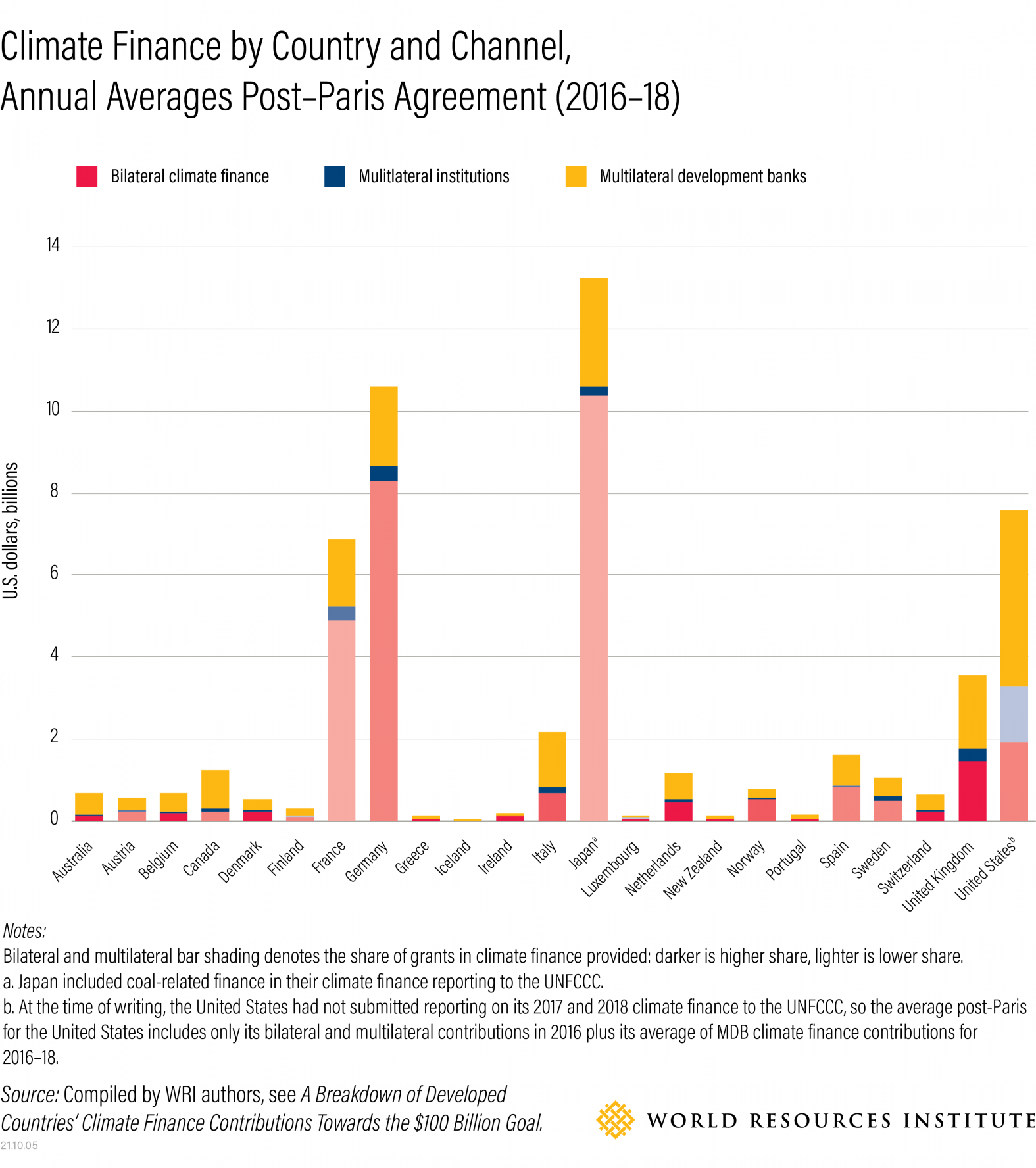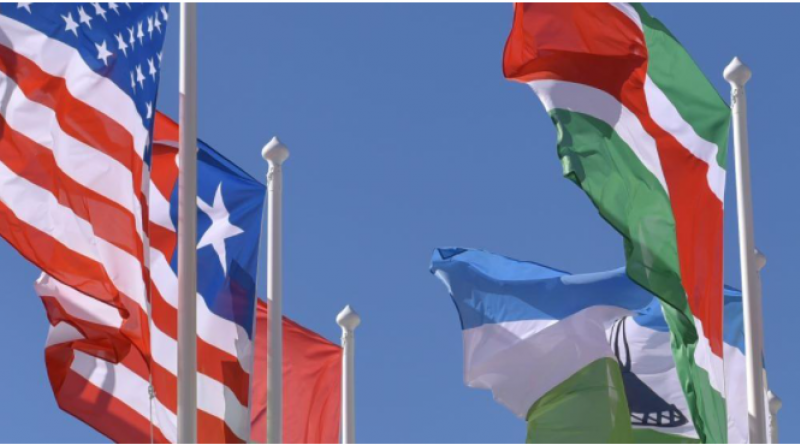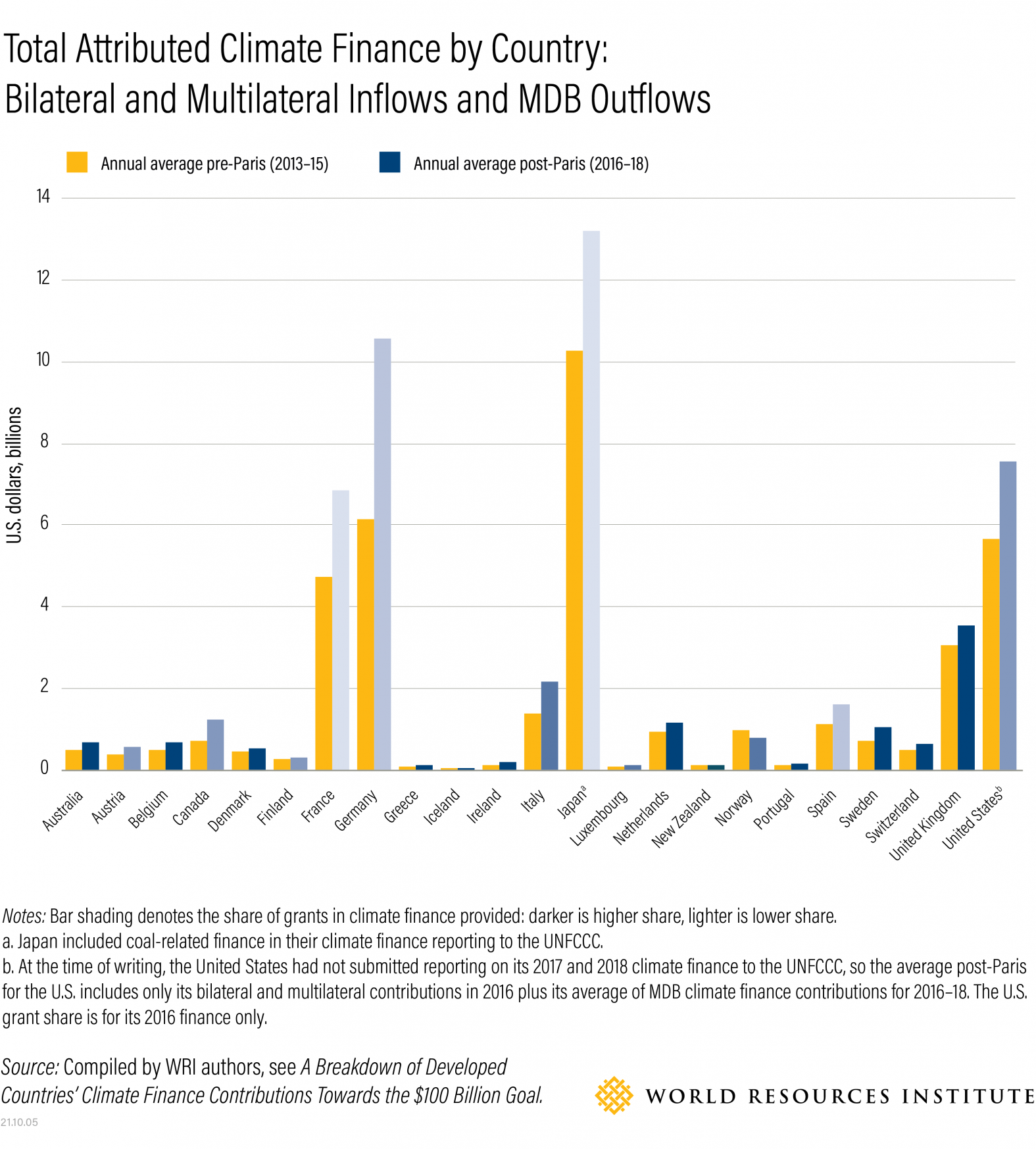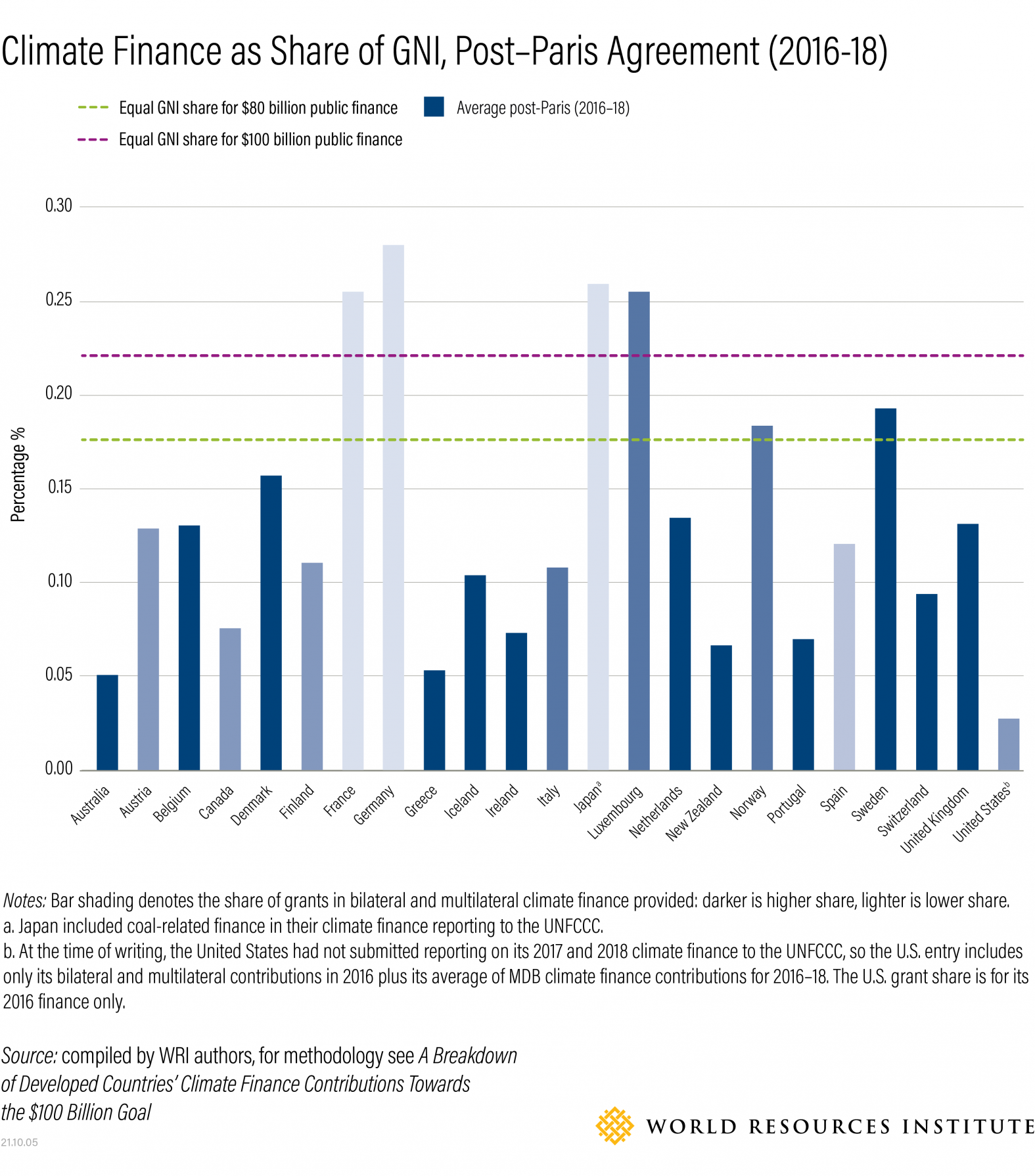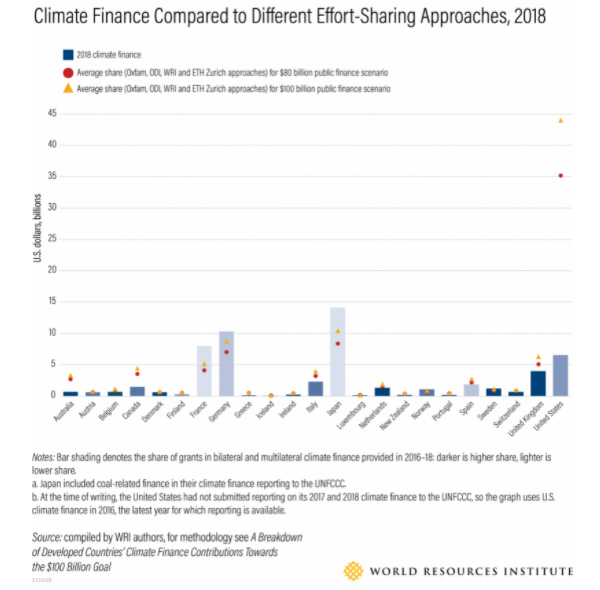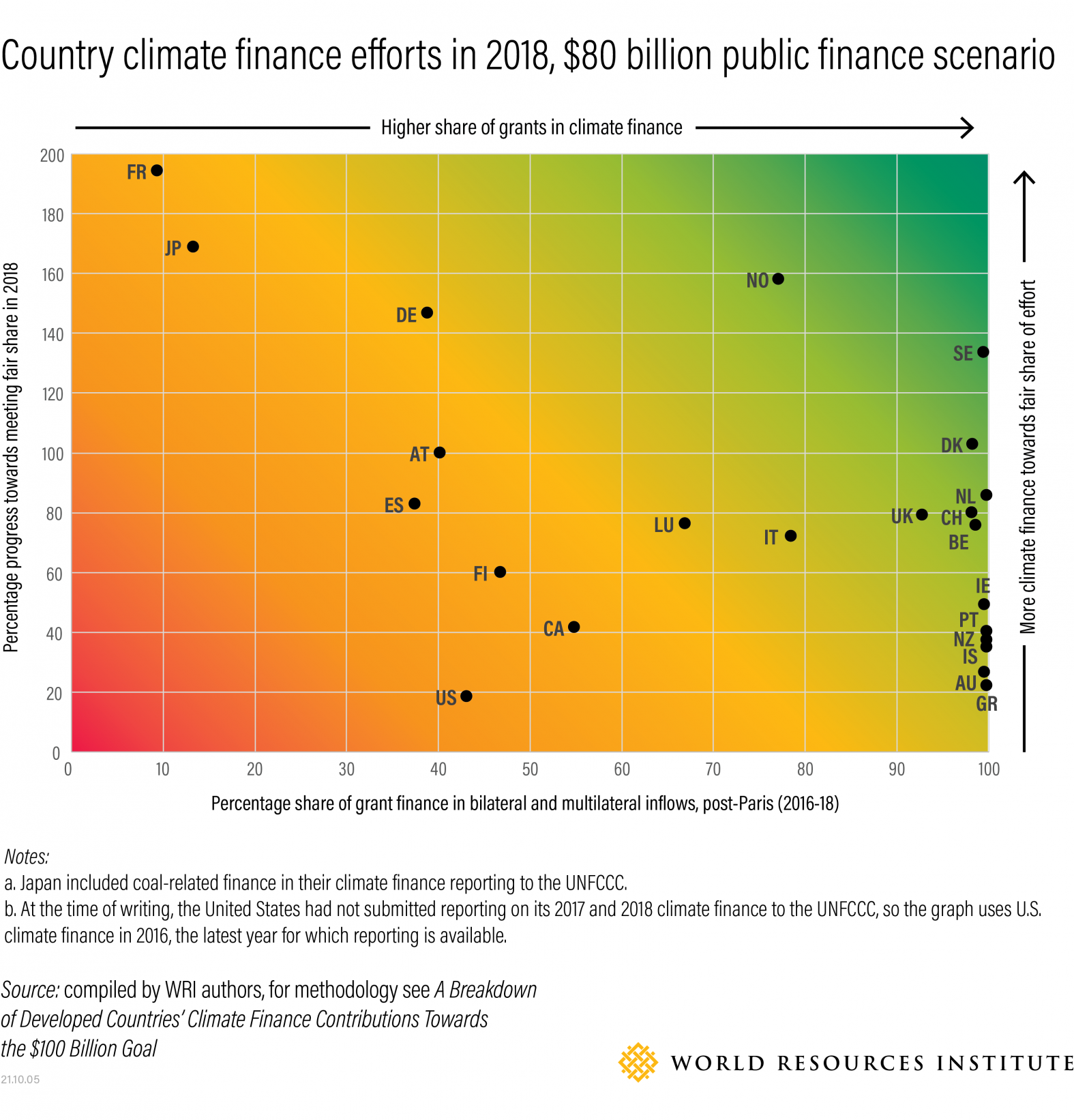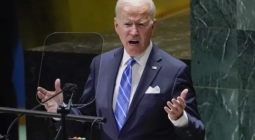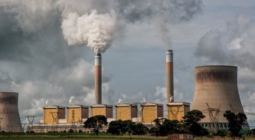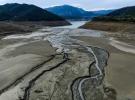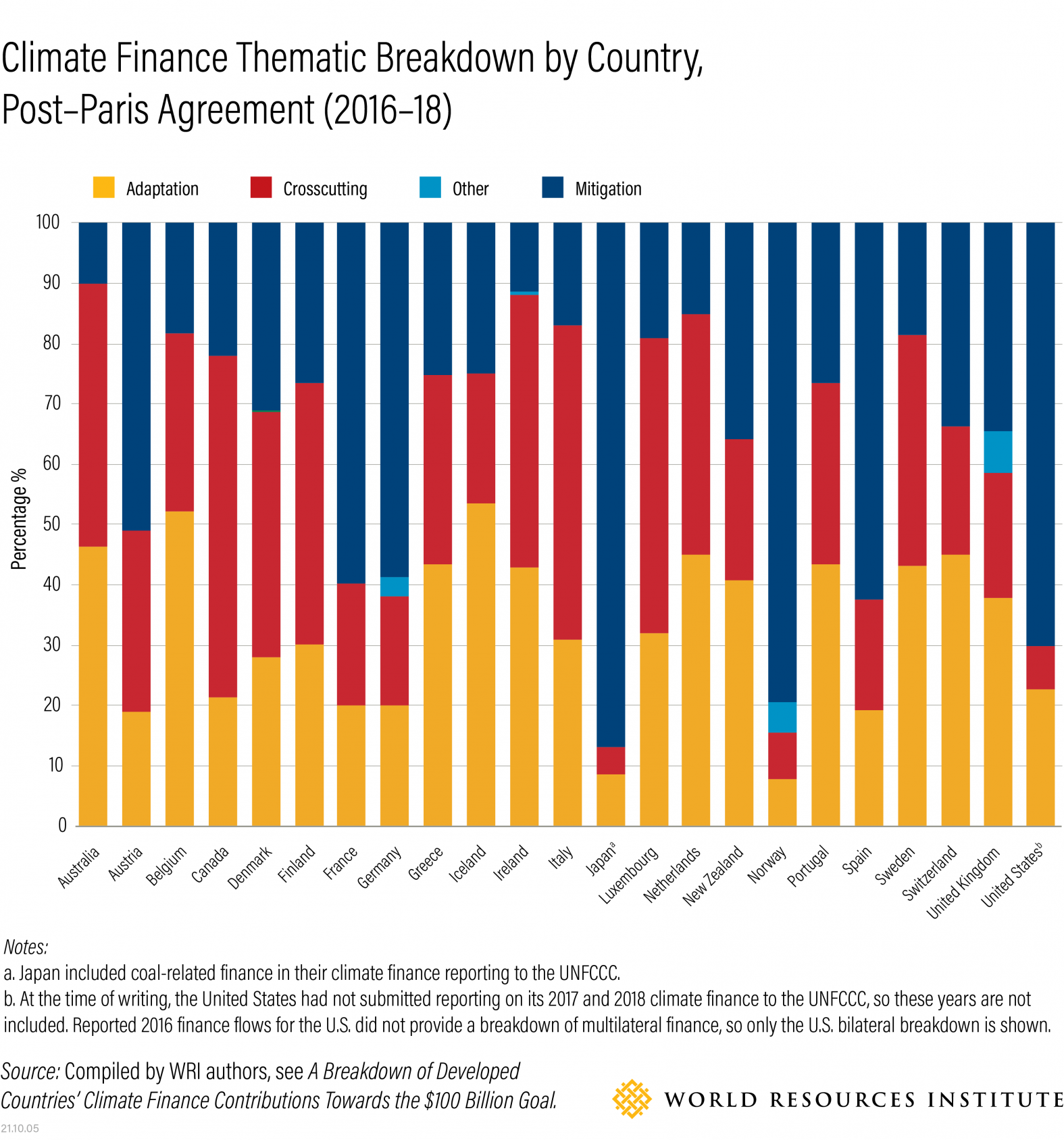
5. Little Finance Flows Through Multilateral Climate Funds like the Green Climate Fund and Adaptation Fund.
Developed countries vary in which channels they prioritize for their climate finance contributions. The majority put their largest shares through multilateral development banks (MDBs) such as the World Bank and Asian Development Bank, reflecting the fact that developed countries are significant shareholders in these institutions and that MDBs are dedicating an increasing share of their funding to climate objectives.
By far the smallest channel used by every country is other multilateral institutions, such as the Green Climate Fund and Adaptation Fund. This is concerning given the Paris Agreement mandates many of these funds with a special role in the implementation of the Agreement. These funds also give developing countries a greater say in the governance of climate finance and enable them to directly access funding, something climate-vulnerable countries are calling for.
Getting Climate Finance on Track
Climate finance is key to supporting developing countries’ increased climate action. Developed countries must ensure they collectively deliver on the $100 billion goal and go beyond it.
Three actions will be critical:
First, many countries must provide more climate finance to contribute their fair share of the effort, with the United States holding the greatest responsibility.
Second, countries need to improve the quality of the climate finance they provide. Developing countries need more finance in the form of grants and for adaptation. Developed countries should address these requests, which are also emphasized in the Paris Agreement.
And finally, data reporting needs to improve significantly. Rectifying reporting ambiguities is crucial to increase accountability, transparency and trust. The upcoming UN climate conference in Glasgow (COP26) will consider the common tabular formats that developed countries must use to report on financial support under the Paris Agreement’s Enhanced Transparency Framework from 2024 onwards. This provides an opportunity to address gaps and improve individual countries’ reporting, building on the lessons learned from the current transparency system.
Finance holds international climate action together and powers its acceleration. There is no time to waste.
7 October 2021
